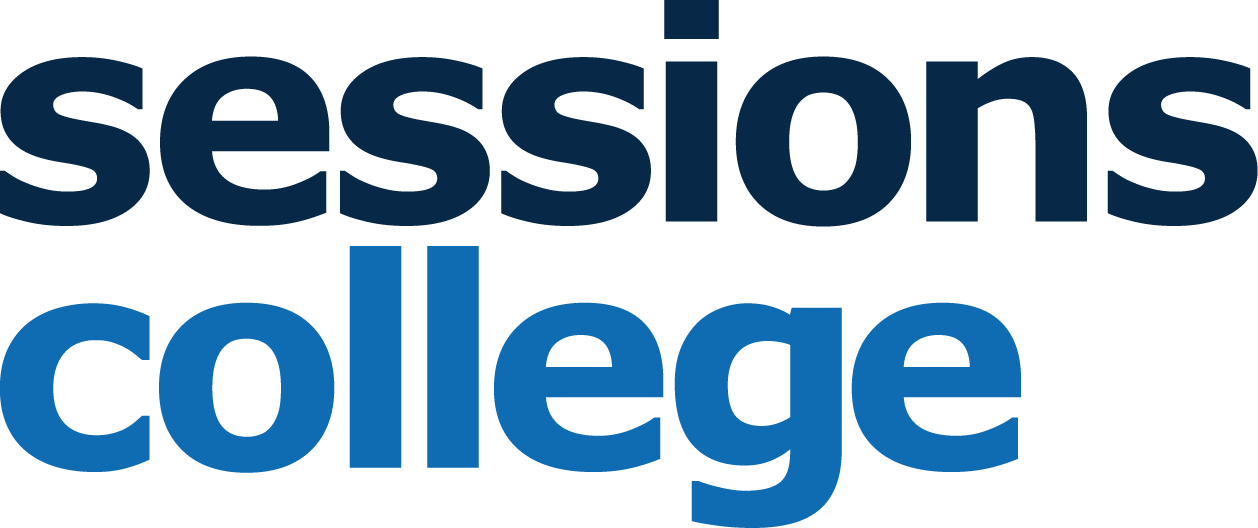How to Become a Medical Office Specialist in Rhode Island

Want personalized recommendations?
Let's match you to the right program

What is a Medical Office Specialist?
A Medical Office Specialist, also known as a Medical Administrative Assistant, is a healthcare professional who plays a crucial role in the smooth functioning of a medical facility. They are responsible for a variety of administrative and clerical tasks, ensuring that the office operates efficiently and patients receive the necessary care.
Some of the responsibilities of a Medical Office Specialist include:
-
Greeting and checking in patients
-
Scheduling appointments and managing calendars
-
Maintaining patient records and medical documentation
-
Coordinating insurance and billing procedures
-
Assisting healthcare providers with various administrative tasks
Article continues after recommendations
Recommended for you
Where does a Medical Office Specialist work?
Medical Office Specialists can find employment in a wide range of healthcare settings. These may include:
-
Hospitals and medical centers
-
Private physician offices
-
Outpatient clinics
-
Urgent care facilities
-
Rehabilitation centers
-
Nursing homes and assisted living facilities
What are the requirements to become a Medical Office Specialist in Rhode Island?
To become a Medical Office Specialist in Rhode Island, certain education and legal requirements must be met. These may include:
-
Education: Most employers prefer candidates with a high school diploma or equivalent. However, some positions may require additional education, such as a certificate or diploma in Medical Office Administration.
-
Legal Requirements: Some employers may require Medical Office Specialists to pass a background check and drug screening. Additionally, knowledge of medical terminology, computer skills, and excellent communication abilities are highly valued in this profession.
Where can I find Medical Office Specialist classes in Rhode Island?
Dreambound is the largest platform for students to find and compare vocational training programs, including Medical Office Specialist classes in Rhode Island. They offer comprehensive listings of accredited institutions and training providers.
If you're interested in pursuing a career as a Medical Office Specialist in Rhode Island, you can find relevant classes on Dreambound's website here. Dreambound's platform can help you find classes near you, compare different programs, and make an informed decision about your educational journey.
How do I get my Medical Office Specialist certification?
If you are interested in pursuing a career as a Medical Office Specialist, obtaining the necessary certification is an important step. Certification not only demonstrates your proficiency in the field, but it can also enhance your job prospects and earning potential. In this section, we will outline the steps you need to take to get your Medical Office Specialist certification.
-
Research certification requirements: The first step in obtaining your Medical Office Specialist certification is to research the specific requirements set by the certifying organization. There are several organizations that offer certification for Medical Office Specialists, such as the National Healthcareer Association (NHA) and the American Medical Technologists (AMT). Each organization may have different eligibility criteria, so it is important to carefully review their requirements.
-
Complete a training program: Once you have identified the certifying organization you wish to pursue certification with, the next step is to complete a training program. These programs are typically offered by vocational schools, community colleges, or online institutions. The training program will cover topics such as medical terminology, medical billing and coding, medical office procedures, and electronic health records management. It is important to choose a program that is accredited by the relevant accrediting body.
-
Gain practical experience: In addition to completing a training program, many certifying organizations also require candidates to gain practical experience in a medical office setting. This can be done through an internship, externship, or on-the-job training. Practical experience is valuable as it allows you to apply the knowledge and skills you have learned in a real-world setting.
-
Prepare for the certification exam: Once you have completed your training program and gained practical experience, the next step is to prepare for the certification exam. The exam will test your knowledge and skills in areas such as medical office procedures, medical billing and coding, patient scheduling, and medical records management. There are various resources available to help you prepare for the exam, such as study guides, practice exams, and online courses.
-
Take the certification exam: After you have thoroughly prepared for the exam, you can schedule a date to take the certification exam. The exam is typically administered at a testing center and consists of multiple-choice questions. The specific passing score and exam format may vary depending on the certifying organization. Once you have successfully passed the exam, you will be awarded your Medical Office Specialist certification.
-
Maintain your certification: After obtaining your Medical Office Specialist certification, it is important to maintain it by fulfilling any continuing education requirements set by the certifying organization. This may include completing a certain number of continuing education credits or participating in professional development activities. By staying up-to-date with the latest industry trends and best practices, you can ensure that your certification remains valid and current.
How do I get a job as a Medical Office Specialist?
Now that you have obtained your Medical Office Specialist certification, the next step is to find a job in the field. Here are some steps to help you get started on your job search:
-
Update your resume: Before you start applying for jobs, take the time to update your resume. Highlight your certification, training, and any relevant work experience or internships you have completed. Be sure to tailor your resume to each job you apply for, emphasizing the skills and qualifications that are most relevant to the position.
-
Network: Networking is an important aspect of finding a job in any field, and healthcare is no exception. Reach out to your instructors, classmates, and anyone else you know who works in the healthcare industry. Attend job fairs, industry events, and join professional organizations related to medical office administration. Networking can help you uncover hidden job opportunities and make valuable connections in the field.
-
Search online job boards: Utilize online job boards to search for Medical Office Specialist positions in your area. Websites such as Indeed, LinkedIn, and CareerBuilder often have a wide range of job postings in the healthcare industry. Use keywords such as ""Medical Office Specialist"" or ""Medical Administrative Assistant"" to narrow down your search. You can also set up job alerts to be notified when new positions are posted.
-
Apply directly to healthcare facilities: In addition to online job boards, consider reaching out directly to healthcare facilities in your area. Hospitals, clinics, physician's offices, and other healthcare providers may have job openings that are not listed on job boards. Send your resume and a personalized cover letter to the human resources departments of these facilities to express your interest in working as a Medical Office Specialist.
-
Prepare for interviews: Once you start receiving interview invitations, take the time to prepare for each interview. Research the healthcare facility and familiarize yourself with their mission, values, and services. Practice common interview questions and prepare examples of how your skills and experience align with the requirements of the position. Dress professionally and bring copies of your resume, certification, and any other relevant documents.
-
Follow up: After each interview, be sure to send a thank-you note or email to the interviewer expressing your gratitude for the opportunity to interview. This demonstrates your professionalism and can leave a positive impression. If you have not heard back after a certain period of time, it is acceptable to follow up with a polite inquiry about the status of your application.
Get courses selected just for you
Try our powerful search engine
Article continues after recommendations
Career Paths and Opportunities after Becoming a Medical Office Specialist
Once you have become a certified Medical Office Specialist, there are several career paths and opportunities available to you. Here are some options to consider:
-
Medical Office Administrator: As a Medical Office Specialist, you can pursue a career as a medical office administrator. In this role, you would be responsible for managing the administrative tasks of a medical office, such as scheduling appointments, coordinating patient care, managing medical records, and handling billing and insurance claims.
-
Medical Billing and Coding Specialist: Another career path to consider is becoming a medical billing and coding specialist. In this role, you would be responsible for accurately coding diagnoses and procedures, submitting claims to insurance companies, and ensuring that healthcare providers receive proper reimbursement for their services. This role requires a strong understanding of medical terminology, coding systems, and insurance regulations.
-
Healthcare IT Specialist: With the increasing use of electronic health records (EHRs) in healthcare settings, there is a growing demand for healthcare IT specialists. In this role, you would be responsible for managing and maintaining EHR systems, ensuring data security and privacy, and training healthcare staff on the use of EHR software. This role requires a strong understanding of technology and healthcare processes.
-
Medical Office Manager: If you have several years of experience as a Medical Office Specialist, you may consider advancing to a managerial role. As a medical office manager, you would be responsible for overseeing the daily operations of a medical office, managing staff, ensuring compliance with healthcare regulations, and implementing policies and procedures to improve efficiency and patient care.
-
Specialize in a specific healthcare field: As a certified Medical Office Specialist, you can choose to specialize in a specific healthcare field. For example, you may specialize in dermatology, cardiology, pediatrics, or another specialty. By specializing, you can develop a deeper understanding of the specific medical terminology, procedures, and billing practices related to that field.
-
Entrepreneurship: If you have the desire to start your own business, becoming a Medical Office Specialist can provide you with the skills and knowledge needed to run a successful medical office. You can open your own medical billing and coding service, a medical transcription business, or even a healthcare consulting firm.
Final Thoughts
Becoming a certified Medical Office Specialist can open up a world of opportunities in the healthcare industry. Whether you choose to work in a hospital, clinic, private practice, or start your own business, the skills and knowledge you gain through certification can set you up for a successful and rewarding career. By following the steps outlined in this article, you can take the necessary steps to obtain your certification and find a job in the field. So, start researching certification requirements, enroll in a training program, gain practical experience, and prepare for the certification exam. With dedication and hard work, you can achieve your goal of becoming a Medical Office Specialist.
Navigate the certification journey in this field with Dreambound's detailed guides, each crafted for various cities. For a deeper understanding of the process in other states, our additional guides may be able to help.
- Medical Office classes near me in Buffalo
- Medical Office classes near me in Cleveland
- Medical Office classes near me in Nashville
- Medical Office classes near me in San Bernardino/Riverside
- Medical Office classes near me in Spokane
Thinking about making a big change in your career path? It's important to be well-informed before starting off on your journey. Dreambound has written hundreds of in-depth guides to help. Explore some of these resources below.

Athena is Co-founder and CEO of Dreambound.



